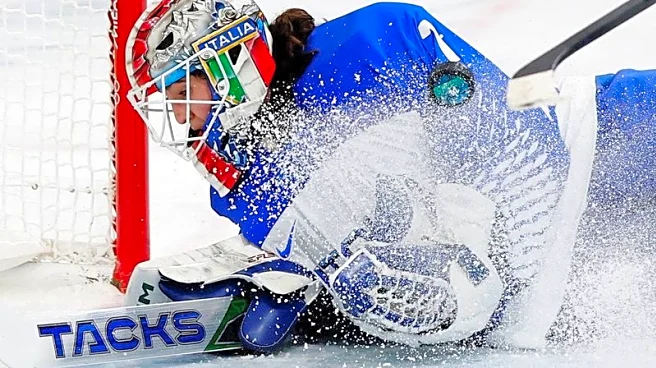Rapid Read • 8 min read
A recent study published in Nature Neuroscience has challenged the long-standing belief that the brain undergoes significant reorganization after the loss of a limb. The research, involving three individuals who underwent arm amputations, found that the brain's representation of the missing limb remains similar to its pre-amputation state, even five years post-surgery. This finding contradicts previous studies suggesting that the brain dramatically reorganizes itself, reallocating the area once responsible for the lost limb to other functions. The study utilized MRI scans to observe changes in the somatosensory cortex, which maintains a detailed map of the body. Participants were asked to imagine moving their missing fingers, and the results showed no evidence of the expected reorganization.
AD
This study has significant implications for the development of brain-computer interfaces, which rely on the brain's ability to maintain stable circuits over time. The findings suggest that the brain's map of the body remains constant, offering hope for advancements in prosthetic technology and treatments for neurological conditions. The research also provides a new perspective on phantom limb pain, suggesting it may result from the brain's unchanged expectation of signals from the missing limb. This could lead to new therapeutic approaches for managing such pain, potentially improving the quality of life for amputees.
The study opens avenues for further research into brain-computer interfaces and prosthetic development, focusing on leveraging the brain's stable body map. Future studies may explore how to better integrate prosthetics with the brain's existing circuits, enhancing functionality and reducing phantom limb pain. Additionally, the findings may prompt a reevaluation of previous research on brain plasticity, encouraging scientists to investigate other factors that might influence the brain's response to limb loss.
The study challenges the notion of the brain's plasticity, suggesting that neurons may not be as adaptable as previously thought. This raises questions about the limits of neural reorganization and the potential for targeted therapies that work with the brain's existing structures. The research also highlights the importance of personalized approaches in neuroscience, as the study's methodology of comparing pre- and post-amputation brain scans offers a more accurate understanding of individual brain changes.
AD
More Stories You Might Enjoy













